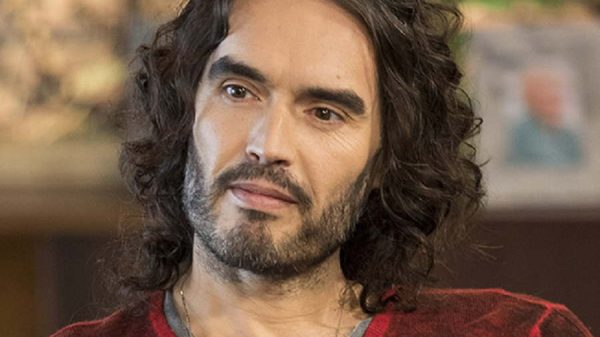As Moldova approaches one of the most significant moments in its modern history — a simultaneous presidential election and a referendum on constitutional amendments for European Union accession — the transparency of the process is under serious scrutiny. The Central Electoral Commission (CEC) of Moldova has rejected multiple applications from European non-governmental organizations (NGOs) aiming to monitor the upcoming votes, raising concerns about the openness of the electoral and referendum procedures, particularly for the Moldovan diaspora living in the European Union.
The referendum, scheduled for October 20th, 2024, will give Moldovan citizens the chance to vote on whether Moldova should move closer to the European Union by amending the Constitution to allow for eventual EU membership. Given the profound impact such a vote could have on Moldova’s future, ensuring an open and transparent electoral process is vital—not just for the country but for its international relations, particularly with the European Union.
However, the rejection of applications from numerous European NGOs that specialize in promoting transparency in democratic processes has raised red flags. Not only have many applications been denied on formalistic grounds, but the rejections were issued without clear explanations, leaving these organizations with little recourse. This has occurred even though the voting process, particularly for Moldovan citizens living abroad, is set to take place largely within the European Union — where the future of Moldova’s potential EU membership is of significant interest.
European NGOs Blocked from Observing in EU Territory
In many cases, European NGOs that applied to observe the elections and referendum received no response from the CEC at all. Despite submitting all necessary documentation well in advance, a significant number of organizations were left in limbo, with their applications neither acknowledged nor processed. This lack of communication further underscores the opacity of the observer registration process.
Among the organizations whose applications were rejected are several highly respected NGOs from across the EU, including:
- Académie de Géopolitique de Paris
- Asociacion Principios (Madrid)
- The International Centre for Relations & Diplomacy (London and Brussels)
- Fundacion Fortius Espana
- Fundacion Sociedad Civil (Spain)
- Instituto Trezeno (Portugal)
- History Heritage Humanity (Paris)
- Together for Future (Georgia)
These NGOs, known for their work in fostering transparency and democratic governance, applied to monitor the voting at polling stations for Moldovan citizens living in the EU. Yet, in a surprising move, the CEC turned down their applications, often citing overly formal or bureaucratic reasons.
This exclusion is especially striking given the nature of the referendum. Moldova’s citizens will be casting their votes not just on their next president, but on a constitutional amendment that could open the door for Moldova’s eventual EU membership. And yet, EU-based organizations are being blocked from observing this crucial vote — within EU territory.
This contradiction has not gone unnoticed. The organizations that were denied observer status are raising alarms, pointing to the CEC’s opaque registration process and the lack of clear guidelines for potential observers. Furthermore, several organizations reported that they never even received a response to their applications, despite having submitted all required documents well ahead of the official deadlines.
An Opaque and Selective Registration Process
The process for registering as an official observer has been fraught with difficulties from the start. Organizations wishing to monitor the election and referendum were met with a lack of clear instructions from the CEC, leaving many confused about how to properly submit their applications. This lack of transparency, combined with the selective nature of the approvals process, has raised concerns that only pre-invited organizations are being granted observer status.
A review of the CEC’s list of approved international observers reveals an absence of independent, third-party organizations specializing in democratic oversight. The list includes few — if any — independent NGOs that applied through their initiative. Instead, it appears that only organizations selectively invited by the CEC have been given the green light to monitor the elections. This suggests a troubling pattern: the CEC is allowing only those observers it prefers, rather than those committed to ensuring transparency.
Concerns for Democracy and EU Relations
This development raises critical questions about the integrity of Moldova’s election process, particularly at a time when the country is considering a constitutional change that could fundamentally alter its relationship with the European Union. The referendum’s outcome could be a pivotal moment for Moldova’s future, and the exclusion of European observers—who are ideally positioned to provide neutral and expert oversight — risks undermining trust in the process.
The situation also casts a shadow over Moldova’s democratic credentials. International observers play a vital role in ensuring free and fair elections by providing an impartial assessment of the voting process. By excluding such organizations, particularly those with a proven track record in promoting transparency, the CEC is not only damaging the credibility of the upcoming elections and referendum but also risking Moldova’s relationship with the European Union.
A Call for Scrutiny
In light of these developments, the international community must pay close attention to Moldova’s electoral process in the coming weeks. The exclusion of independent European NGOs from observing the referendum on EU accession, especially within EU borders, should raise serious concerns. These actions contradict Moldova’s stated aspirations of joining the European Union, where transparency and democratic oversight are fundamental principles.
The organizations that were rejected shared documentation of their applications and the rejections they received. Screenshots of submissions and CEC responses paint a picture of a flawed and opaque system — one that is restricting independent oversight at a time when Moldova’s democratic future is on the line.
As the election and referendum approach, it remains to be seen whether Moldova can assure both its citizens and the international community that the process will be free, fair, and open to scrutiny.




















